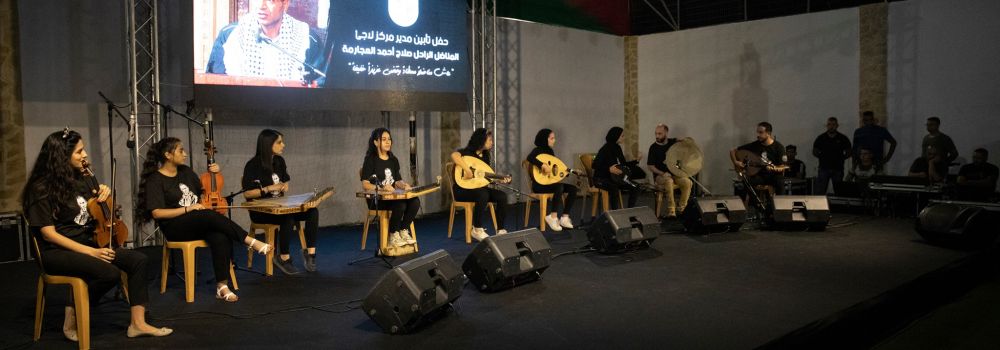

Lajee Music Institute
The Lajee Music Program was officially established in the summer of 2014. While the idea of teaching music to the children and youth of Aida Camp had always been present, the resources to secure instruments and qualified instructors were not. Finally, in 2014, Lajee Center was able to launch the program. With only a few instruments, the first music lessons began modestly in the garages of the Lajee building.
Since then, the program has grown steadily. It now serves children and youth between the ages of 7 and 19, teaching not only how to play instruments, but also how to read and write music, understand different musical styles, and explore the work of renowned composers and artists. As students progress, they are placed into ensembles where they train and perform together at local events, festivals, and international stages.
The Lajee Music Group has performed alongside the Lajee Dabka troupe in Ireland, Scotland, and Spain. In each country, students have explored local music traditions and fused them with Eastern sounds, creating powerful performances that reflect both cultural exchange and artistic collaboration.
Currently, the Lajee Music Program includes approximately 25 members divided into four training units, in addition to 15 members in the choir. Each unit focuses on a different instrument. The primary instruments taught are the Oud, Violin, Qanun, and Tabla. All instruments and training sessions are provided free of charge to participating children from Aida Camp.
Throughout their training, students learn far more than musical technique. They are encouraged to develop their own compositions, take responsibility for their practice, and grow in independence and self-confidence. Lajee also hosts workshops in cooperation with other refugee camps and international music groups, creating opportunities for participants to engage with different styles, tools, and cultural approaches to music.
Today, the first generation of Lajee music students have become mentors, training and supporting the next wave of young musicians. Through this intergenerational model, the spirit of the program continues to thrive—nurturing creativity, resilience, and cultural identity through music.


